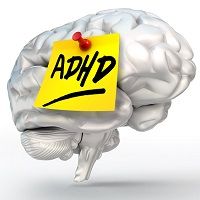Article
Prenatal Vitamin D Could Lower Baby's ADHD Risk, While Some Diabetes Drugs May do the Opposite
Author(s):
While one study found that taking vitamin D during pregnancy may hinder early ADHD symptoms, another recent study believes that gestational use of diabetes medications may lead to them.

A pair of recent studies may provide soon-to-be mothers insight on how the vitamins and drugs they take while pregnant will impact their child's brain.
The first found that the age of two and a half years, children whose mothers took vitamin D during their pregnancies demonstrate fewer symptoms of attention deficit hyperactivity disorder (ADHD).
Researchers from the University of Southern Denmark Faculty of Health Sciences examined toddlers through a behavior checklist in order to examine the links between mothers who took vitamin D during their pregnancy and the development of ADHD in their offspring. The Child Behavior Checklist — completed on the behalf of 1,233 children – was designed for children ages 1.5 years to five years and was returned to the study authors by the parents. The researchers also measured the levels of vitamin D in the mothers’ umbilical cord blood.
The study authors added that although an ADHD diagnosis cannot be made by age two and a half, that was the age where the mothers were instructed to complete the behavior checklist.
“For every 10 nmol/L increase in the vitamin D concentration in umbilical blood, the risk of being among the 10% highest score on the ADHD symptom scale fell by 11%,” study initiator and professor, Niels Bilenberg, PhD, said in a press release. “And the trend was clear: those mothers who had taken vitamin D, had a vitamin D level in their umbilical blood over 25 nmol/L, had children with lower ADHD scores. This was after we had corrected for other factors that could explain the link, such as the mother’s age, smoking [habits], alcohol [use], obesity, education, number of children, psychiatric disease in the parents, child’s sex, age and seasonal variation.”
Published in The Australian & New Zealand Journal of Psychiatry, the study is not the first to notice a link between vitamin D use and ADHD early ADHD symptoms, but the researchers added that these other studies demonstrate that vitamin D is important for early fetal brain development. However, they are still unable to say with any certainty that vitamin D protects against early ADHD symptoms.
"We were very surprised that the link was so clear, as there was no previous awareness that this link could be identified at such an early age,” two of the study's other authors, medical students Jens Bull Aaby and Mats Mossin, added in the statement. “It's impossible to say with which children will develop ADHD later on, but it will be interesting to further follow up those children who were at the highest end versus the normal range of the ADHD scale.”
While taking vitamin D during pregnancy may lessen the chance of ADHD, another recent study believes that gestational use of diabetes medications may increase it.

Researchers from Kaiser Permanente Southern California observed more than 23,000 children with mothers who had either type 2 diabetes or gestational diabetes in order to determine if the antidiabetic medications could affect fetal brain development and put the children at risk for ADHD in the future. The researchers also observed more than 110,000 children who were not exposed to such medication in utero for comparison, all born between 1995 and 2009 in hospitals as singletons. Their findings were presented at European Association for the Study of Diabetes 2016 Annual Meeting in Munich.
The children were followed from age five via electronic health records, until any of the following occurred: date of clinical diagnosis with ADHD; last date of continuous health plan membership; death due to any cause; or December 31, 2014.
After an average of 9 year of follow up, 5,411 children were diagnosed with ADHD after age five years; 4,501 children were unexposed to antidiabetic medication during gestation, 132 children were exposed to type 2 diabetes medication, and 778 children were exposed to gestational diabetes medication. The percentages of children with ADHD were 4.0% overall, 4.1% unexposed, 3.9% of type 2 diabetes exposed, and 3.8% gestational diabetes exposed. The researchers noted that as groups, the risk of ADHD was not significantly elevated for type 2 diabetes exposed or gestational diabetes exposed,; however, they added that diabetes medication dispensed during pregnancy for either type 2 diabetes or gestational diabetes was linked to risk of ADHD in the offspring.
“Risk of ADHD in offspring may be increased for mothers who require diabetes medication for more than two months to manage hyperglycemia during pregnancy,” the study authors concluded in their abstract. “Studies are needed to understand the causes of the observed elevated risk in the medication group.”
Related Coverage:
Prenatal Diets Could Affect ADHD Development in Offspring




